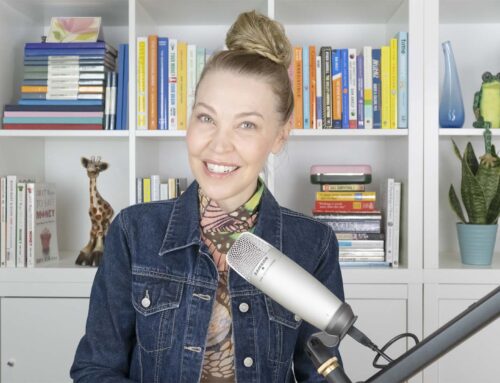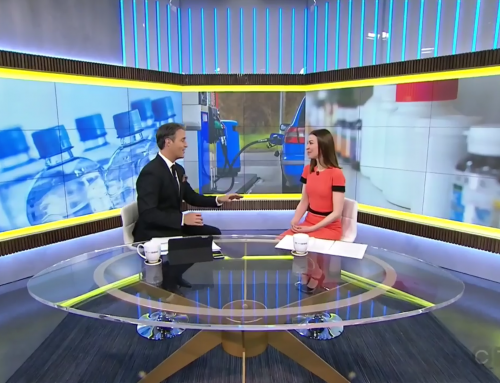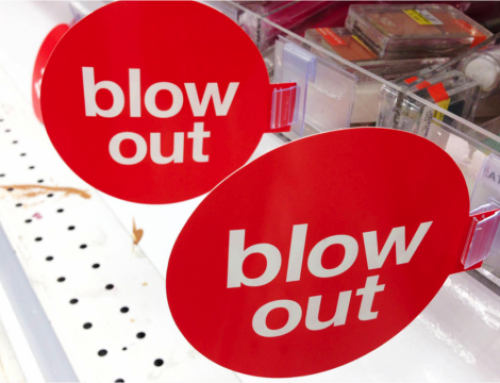Every day I am in pain. Big whoop, right? We’re all in some level of pain at some point in our lives. But what if that pain, an illness, or a life emergency prevents you from working or requires a stash of cash to get you back on your feet? How would you afford the mortgage, keep food on the table, or pay for expensive prescriptions while recovering?
Hate to be a downer, but even healthy people can get blindsided with sudden illness or life emergencies. I’ve been unable to keep full time hours since developing my own ailment, a “knee thing”. A “knee thing” is a highly technical (and mostly Latin) way of saying, “Ouchus Maximus! This thing requires surgery, expensive medications, and time away from work”.

My “knee thing” might have brought me to my financial knees if not for my knee-knocking emergency fund. In no uncertain terms, during this time, my emergency fund has saved my a$$.
What is an emergency fund?
An emergency fund is a stash of cash kept in an accessible account, usually a high interest savings account of sorts. This cash is saved for times of emergency need. Emergency needs vary from person to situation, but usually entail an unforeseen event where you must have a sum of money to get over the tough time. An emergency fund is not for buying a new pair of Jimmy Choo shoes, even if they are on sale. 😉
Why should you start an emergency fund?
In a nutshell, s$it happens and bad things can happen to good people. Here are some tangible reasons to start an emergency fund:
- Illness: keeps you from working and earning money.
- Job Loss: high unemployment in your region, or cannot find work.
- Natural Disaster: house blown away in a storm.
- Death: loss of a loved one.
- Busted Hot Water Heater: home swimming in water.
- Fire: apartment burns to the ground.
- Busted Car Brakes: stopping the car is a good idea.
These are but a few “s$it happens” scenarios which could require a quick stash of cash to get you over the financial emergency hump. These scenarios vary in hardship, but all could use some extra emergency money to help.
How do you start building an emergency fund?
It’s neither rocket science nor “knee thing” painful to start an emergency fund. I started my first emergency fund by socking away $25 a pay, or $50 a month. As I built a budget, paid off debts, and cut variable spending, it became easier to save $100-$250 a month. My thought is it’s better to save a little than to save nothing at all.
A simple system to boost savings is to automatically move your money to an accessible (but not too accessible) high interest savings account earmarked specially for emergencies. You will earn a little interest as your fund grows.
How much stashed cash do you need?
This is a hard question to answer. A “financial advisor” once suggested I keep 3K, while a savvy financial friend believed 3-6 months worth of living expenses would keep me safe. The answer really is it depends on your living costs, financial situation, and level of comfort in knowing you have some financial stores for just-in-case situations.
If you’re blown away by these numbers, then start small with a little cash and slowly build. From my experience, it’s very settling to know there is a little moolah set aside for a rainy day, or a bum knee.
- To help you get started, here are 50 Ways to Save $1000 a Year
Dear Emergency Fund: You saved my butt so my knee could get better. Love me.





Good luck with the surgery!!
Mike
I’m sorry about the knee, but enjoy the meds! Great (and timely) article.
Fox – Hope the surgery goes well, and that you have adequate forces ready and able to spoil you during and afterward (and discourage drug-addled posting)!
I agree with anon, and have a wee stash of five dollar bills to hand (hidden) in both my home and workplace. It has actually proved very useful for middle-of-the-night locksmiths, sudden cab rides I didn’t expect to have to take, and buying water on street corners at extortionate prices on 11th sept and during the blackout. Not so much use for knee doctors though.
A reminder that folks also need a CASH emergency fund – meaning Cash accessible for a middle of the night emergency if the ATM’s in town are out, the electric’s out, or you need to make a run to help out a friend or family, or you have to leave town in the middle of the night for a family emergency. Cash is a good thing to have. I like to keep $500 on hand – in a safe secure hiddne, fireproof place, of course.
Best wishes for a successful surgical experience, Foxy Lady.
You are in my prayers, and I’m sending positive energy thoughts
north to all surgical suites in B.C.!
I agree with you regarding maintenance as well and about why emergency funds are great. I think of them as “Murphy-repellent.” For some reason, they keep bad stuff away!
Thanks everyone for the well wishes! 😀
@Beth I see “emergency worthy” as an unforeseen event. So a storm launching a tree in your roof and needing immediate repair would require an emergency fund fix. Regular home maintenance is not (in my books) an emergency. For home repairs some “experts” suggest having a home maintenance fund, for new water heaters and roofs etc.
Foxy — speedy recovery wishes to you!
Question: how to determine what constitutes an emergency worthy of the emergency fund. For example, my husband is currently on the roof doing (a very good job of) a DIY roof replacement so that we didn’t have to use our savings/emerg fund for a roof. I contended new roof = emergency.
Thoughts?
I agree with ya!
The roof would be routine maintenance and should be in the repair fund or long term replacement funding.
However, if the roof was due to an unforeseen act of nature, then the deductible on the insurance would be the emergency funds use, but one should have insurance for the rest of the roof.
[…] Reasons to Build and Love an Emergency Fund […]
I mentioned that point to my niece and family and they didn’t agree with the idea of cash in the bank, their argument is that if your paying interest than your better off putting any extra money on debt or words to that effect
I hope you knee surgery goes well and thanks for sharing another reason to have an emergency fund. Professional athletes have insurance and contracts that pay them during surgery and recovery. Makes sense for everyone to have something saved up for those unknown events.
I would think that 3 months of bills would make sense for savings. I would also take out or stop my normal savings and other things i might do with excess cash.
It really depends on your comfort level like you mentioned and how many mouths your responsible for.
Good to mention this now as people in US are very cash strapped and hardly have home equity to use if needed let alone cash.
Doing some quick math i think 4-6 months worth of bills is what i currently have. Mind you this is over 60% invested as i don’t really need it now, but is quickly converted to cash when needed. House equity is a last resort.
useful post.
DH
[…] inspiring article on how to achieve the impossible posted at Smarter Wealth. Squawfox writes about Reasons to Build and Love Emergency Fund posted at Squawfox. Lazy Man presents $700 Billion Bailouts – Is My Money Safe posted at The Lazy […]
[…] Squawkfox: Reasons to Build and Love an Emergency Fund […]
[…] Articles: Dealing With The Recession Protect Yourself Against The Recession Reasons To Build And Love An Emergency Fund Escaping Paycheck To […]
As someone working in a freelance arts industry, this advice definitely hits close to home. If you work in a field where you never know quite where your next job is coming from, definitely have at least 6 months of living expenses in the bank at all times, as soon as you can.